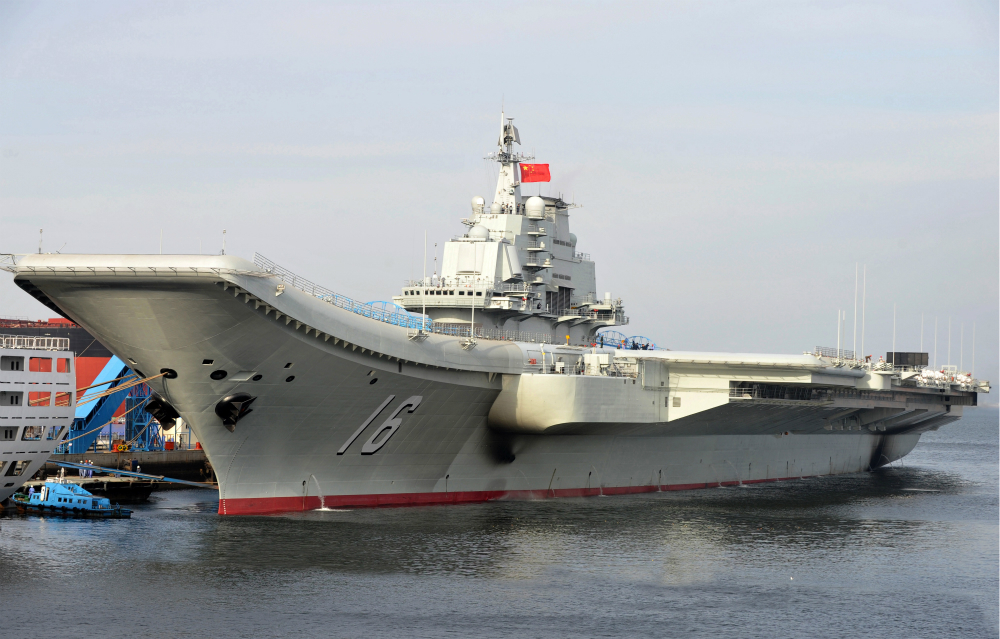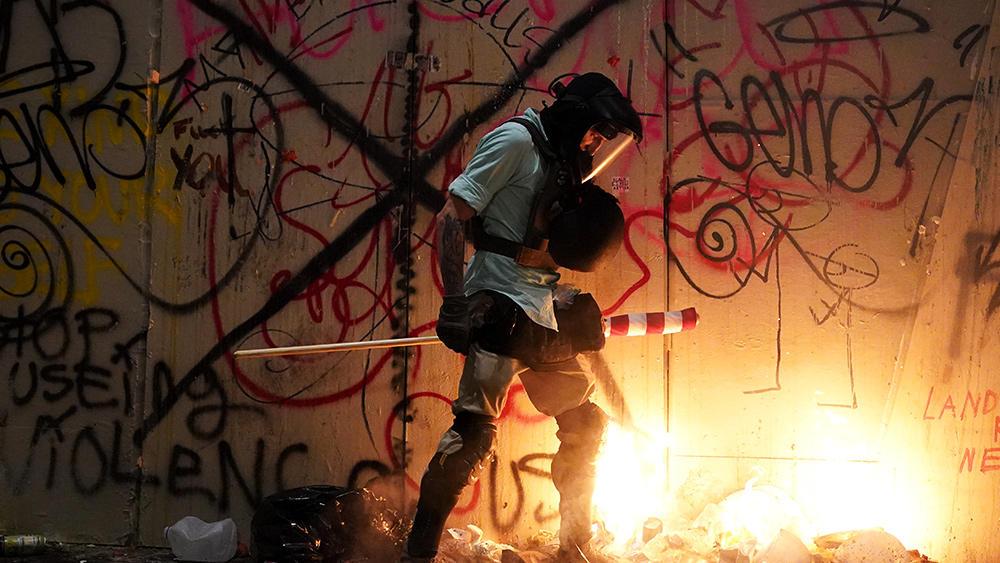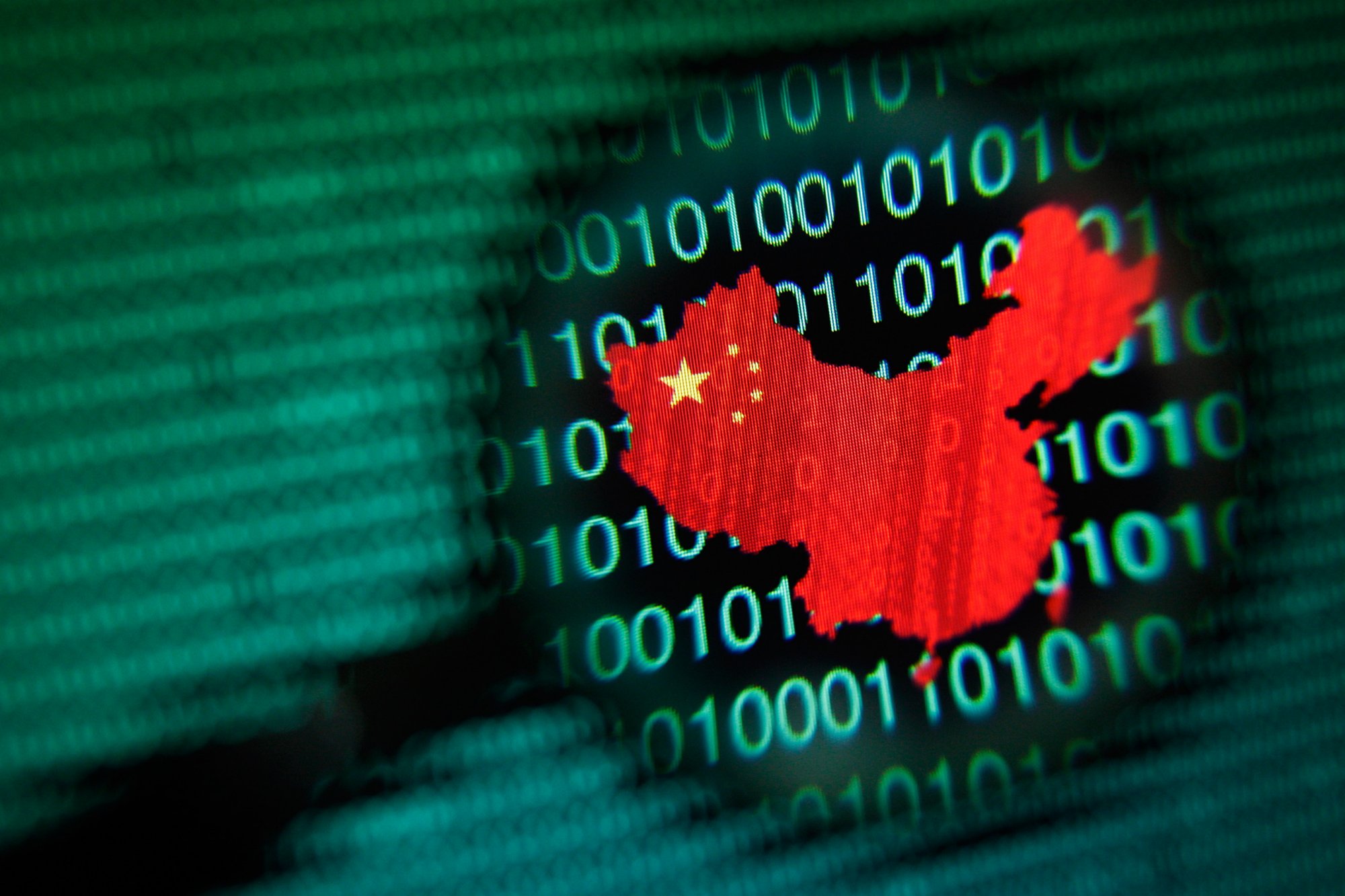US: Beijing’s claims on South China Sea a “sham”
07/27/2020 / By Michael Alexander

China’s claim on the majority of the South China Sea is a sham, the United States State Department has said in a statement.
“We are making clear: Beijing’s claims to offshore resources across most of the South China Sea are completely unlawful, as is its campaign of bullying to control them,” Secretary of State Mike Pompeo said, noting that the move was intended to strengthen U.S. policy “in a vital, contentious” region.
The statement, released a day after the fourth anniversary of a landmark ruling by an international arbitration tribunal that found no legal basis for Beijing’s claims to historic and economic rights in most of the South China Sea, is a reversal of an Obama-era stance on non-interference in the region.
“The world will not allow Beijing to treat the South China Sea as its maritime empire,” Pompeo said.
Pompeo’s statement also came about a month after the issuance of a joint statement by several Southeast Asian leaders condemning Beijing’s oppressive and expansive claims over the South China Sea, insisting that the 1982 United Nations Convention on the Law of the Sea or UNCLOS should be the only basis when it comes to determining sovereign rights and entitlements in maritime areas.
“America stands with our Southeast Asian allies and partners in protecting their sovereign rights to offshore resources, consistent with their rights and obligations under international law. We stand with the international community in defence of freedom of the seas and respect for sovereignty and reject any push to impose ‘might makes right’ in the South China Sea or the wider region,” Pompeo said.
China currently claims nine-tenths of the 3.5-million square kilometer South China Sea under its self-proclaimed “nine-dash line” – much to the displeasure of the Philippines, Vietnam, Brunei, Malaysia and Taiwan, who have also laid claim to several sections of the said area.
Approximately USD 5 trillion in goods pass through the South China Sea each year.
Further contesting Beijing’s claims, Pompeo said that China, despite claiming otherwise, has failed to put forth a lawful, coherent maritime claim in the South China Sea.
“There are clear cases where [China] is claiming sovereignty over areas that no country can lawfully claim,” the US Department of State said in a fact sheet that accompanied Pompeo’s statement. (Related: Trump administration declares it will no longer treat China with kid gloves as “days of American passivity are over”.)
In response, the Chinese embassy in the U.S described Pompeo’s announcement as “completely unjustified,” adding that Washington is “stirring up tension” and “inciting confrontation” in the region.
“We advise the U.S. side to earnestly honor its commitment of not taking sides on the issue of territorial sovereignty, respect regional countries’ efforts for a peaceful and stable South China Sea and stop its attempts to disrupt and sabotage regional peace and stability,” the Embassy stated.
A similar statement was broadcast by China’s foreign ministry, with spokesman Zhao Lijian calling Pompeo’s statement “irresponsible” and the United States as the “destructor and troublemaker to peace and stability in the region.”
“It frequently dispatched large-scale advanced warships and military aircraft to the South China Sea that militarised the region and promoted power logic and hegemony,” Zhao said, a possible reference to the two aircraft carriers sent by the U.S. to participate in one of its largest naval exercises in recent years in the potentially energy-rich region.
What is the meaning behind China’s Nine-Dash-Line?
Beijing’s claim on the South China Sea is centered on its “nine-dash line,” an imaginary, irregularly-shaped border that runs as far as 2,000 kilometers from the Chinese mainland to within a few hundred kilometers of the Philippines, Malaysia and Vietnam.
This line first appeared on a Chinese map as an 11-dash line in 1947, just around the time when China’s navy first took control of some islands in the area that had been previously occupied by Japanese forces at the height of the second world war.
By the early 1950s, however, two dashes were removed in order to bypass the Gulf of Tonkin — purportedly a gesture of solidarity of the Chinese Communist Party toward their comrades in North Vietnam.
Over the next six decades, China’s claims were largely left unnoticed — mostly because the Chinese government was not keen on asserting it publicly, Julian Ku, a professor at Hofstra University in New York, said.
That changed in 2009 after China submitted the nine-dash line map to the United Nations in order to counter a claim by Vietnam over an extended continental shelf, as well as assert its sovereignty over the Paracel and Spratly Islands.
“China has indisputable sovereignty over the islands in the South China Sea and the adjacent waters, and enjoys sovereign rights and jurisdiction over the relevant waters as well as the seabed and subsoil thereof,” China said in its claim.
Unsurprisingly, Vietnam, Indonesia and the Philippines rejected China’s claim, asserting that it has no basis whatsoever under the 1982 UNCLOS.
This dispute escalated in 2013, when the Philippines lobbed a case against Beijing at the Hague, arguing that China’s claim on the area is invalid because it violates the UNCLOS agreements about exclusive economic zones and territorial seas.
The Hague tribunal, in a landmark decision, backed the Philippines, ruling that rocky outcrops claimed by China – some of which are exposed only at low tide – cannot be used as the basis for territorial claims. In addition, the tribunal noted that some of the waters were “within the exclusive economic zone of the Philippines because those areas are not overlapped by any possible entitlement of China.”
Furthermore, the tribunal found China guilty of violating the Philippines’ sovereign rights in those waters by interfering with its fishing and petroleum exploration and by constructing artificial islands – some of which have been heavily militarized.
China, however, has flouted the tribunal’s ruling, insisting that its claims regarding the disputed territories are valid and that the Tribunal’s decision is null and void and that it has no binding force.
“China neither accepts nor recognizes it,” China said in a statement posted to Xinhua.
Sources include:
Tagged Under: Beijing, brunei, CCP, China, Malaysia, maritime, Mike Pompeo, national defense, national security, nine dash line, Philippines, Pompeo, South China Sea, Taiwan, theft, trade, Trump administration, unclos, United Nations, Vietnam, White House, World War III
RECENT NEWS & ARTICLES
COPYRIGHT © 2017 NATIONAL SECURITY NEWS

















